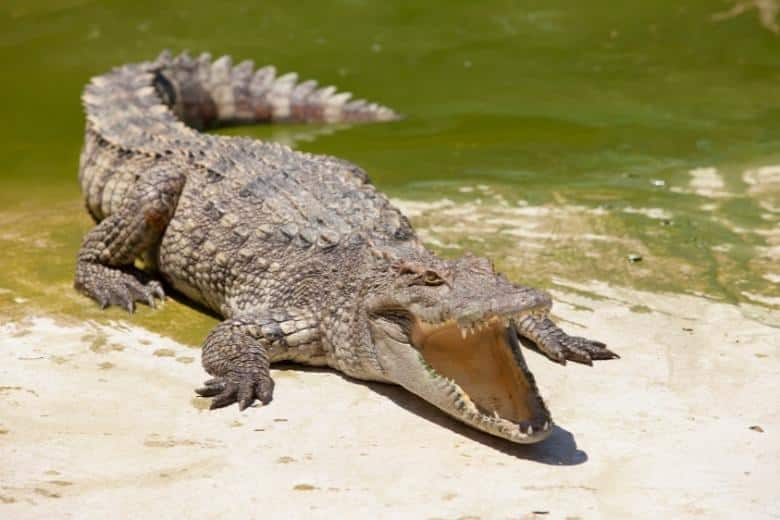Penguins are one of the most beloved and iconic animals in the world. With their distinctive waddling gait, tuxedo-like appearance, and playful personalities, it’s easy to see why they capture the hearts of people young and old. However, as with any species, penguins face a range of challenges and threats in their natural environment. One of the most significant of these threats is predation.
In this article, we’ll explore the predators that eat penguins, the impact of predation on penguin populations, and the strategies that penguins use to defend themselves against their foes.
By the end, you’ll have a better understanding of the complex relationship between penguins and their predators and the importance of protecting these incredible birds for future generations.
Types of predators that eat penguins
Natural predators
The natural predators of penguins include other animals that live in their habitat and hunt them for food. These predators include:
1. Leopard seals
Leopard seals are a type of seal that live in the Antarctic and sub-Antarctic regions. They are the primary predator of penguins, and they are known to be very efficient hunters. Leopard seals are opportunistic predators, meaning that they will hunt and eat whatever prey is available. They are known to ambush penguins from below the water’s surface, grabbing them in their powerful jaws and dragging them under the water to drown them.
2. Orcas
Orcas, also known as killer whales, are a type of toothed whale that lives in the oceans around the world. They are apex predators, meaning that they are at the top of the food chain and have no natural predators themselves. Orcas are known to hunt and eat penguins, as well as other marine mammals such as seals, sea lions, and dolphins.
3. Giant petrels
Giant petrels are a type of seabird that is found in the Southern Ocean. They are opportunistic predators, and they will scavenge for food as well as hunt for it. Giant petrels are known to attack and kill penguins, particularly when the penguins are molting and have reduced mobility.
4. Skuas
Skuas are a type of seabird that is found in the Southern Ocean. They are opportunistic predators, and they will scavenge for food as well as hunt for it. Skuas are known to attack and kill penguin chicks, as well as stealing eggs and food from adult penguins.
Human predators
Unfortunately, humans are also predators of penguins. There are two main ways in which humans prey on penguins:
1. Poachers
Poaching is the illegal hunting and killing of animals for their meat, eggs, feathers, or other parts. Unfortunately, penguins are sometimes targeted by poachers for their meat and eggs. This is particularly true in areas where penguins are not protected by law or where enforcement of laws is weak.
2. Commercial fishing industry
The commercial fishing industry can also be considered a predator of penguins, albeit an indirect one. Fishing boats can accidentally capture penguins in their nets or lines, leading to injury or death. Additionally, overfishing can reduce the availability of food for penguins, leading to malnourishment and weakened populations.
The Impact of predator consumption on penguin populations
The consumption of penguins by predators can have a significant impact on their populations. Over time, sustained predation can lead to a reduction in the number of penguins in a given area, which can have negative effects on the ecosystem as a whole. Additionally, some species of penguins are particularly vulnerable to predation, and their populations are at risk of extinction if predation levels are not controlled.
How do penguins defend themselves against predators?
While penguins are not typically considered aggressive animals, they do have a few strategies for defending themselves against predators:
Huddling together
Penguins often huddle together in groups to stay warm and protect themselves from the cold and wind. This behavior also helps to deter predators, as it makes it difficult for them to single out an individual penguin to attack.
Defensive behavior
When confronted with a predator, penguins may engage in defensive behaviors such as vocalizing, flapping their wings, and snapping their beaks. These behaviors can be effective at deterring predators, particularly if the penguins are in a large group.
Nesting habits
Many species of penguins build nests out of rocks or other materials to protect their eggs and chicks from predators. These nests can be difficult for predators to access, and they provide a safe haven for penguin families.
FAQs
- Do all species of penguins have the same predators?
No, different species of penguins have different natural predators. For example, the emperor penguin’s main predator is the leopard seal, while the Adélie penguin is preyed upon by skuas.
- Do penguins have any defense mechanisms besides huddling together?
Yes, penguins may engage in defensive behaviors such as vocalizing, flapping their wings, and snapping their beaks when confronted with a predator.
- Are there any efforts being made to protect penguins from predation?
Yes, there are many conservation efforts underway to protect penguins from predation. These include protecting penguin habitats, enforcing laws against poaching, and managing the fishing industry to minimize accidental catches of penguins.
- How can individuals help protect penguins from predation?
Individuals can help protect penguins from predation by supporting conservation efforts, such as donating to organizations that work to protect penguin habitats and advocating for stronger laws to protect penguins from poaching.
- What is the biggest threat to penguin populations?
The biggest threats to penguin populations are climate change, overfishing, and habitat destruction. These factors can have a significant impact on the availability of food and nesting sites for penguins, which can lead to declines in population.
Conclusion
While penguins are a beloved and adorable species, they do have predators that hunt and eat them. These predators include natural predators such as leopard seals, orcas, giant petrels, and skuas, as well as human predators such as poachers and the commercial fishing industry. The consumption of penguins by predators can have a significant impact on their populations, and some species of penguins are particularly vulnerable to
predation. However, penguins have developed strategies to defend themselves against predators, including huddling together, defensive behavior, and nesting habits.

